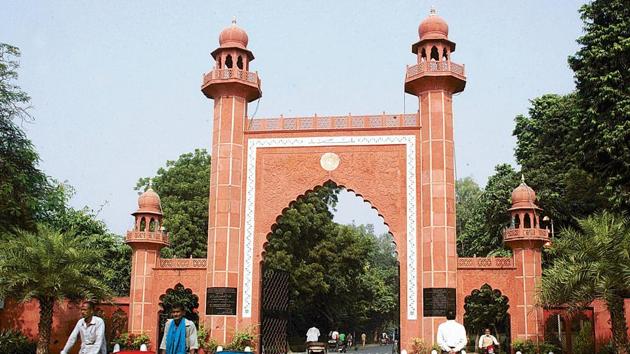UGC’s audit report on AMU demonstrates its ignorance of law
Many of UGC panel’s recommendations, like merging the Shia and Sunni theology departments and reservation quota, go against the Aligarh Muslim University Act 1920
The Aligarh Muslim University was ranked number 10 among Indian universities in the National Institutional Ranking Framework of the ministry of human resource development (MHRD) rankings in 2016. If IITs are removed from the list, the AMU would rank six; and; in 2017, the ranking went down to 11. It scores high on the quality of faculty publications but poorly on the public perception yardstick. In spite of its remarkable all round achievements, the ministry ordered a UGC audit of this great institution. However, some recommendations of the UGC panel clearly demonstrate that it had poor legal counsel. But then ignorance of the law is no defence.

The panel has recommended merging of Shia and Sunni theology departments. Under Article 26 of the Constitution, denominational or sectional freedom has been guaranteed as part of freedom of religion. Section 5(2) (a) of the Aligarh Muslin University Act, 1920, explicitly states the power of the university “to promote oriental and Islamic studies and give instruction in Muslim theology and religion.” This is a unique provision that’s not found in other universities. The university also has the power to undertake study of ‘religions and civilizations’ under Section 5(2)(b) of the Act. The Sunni and Shia theology are an integral part of Muslim civilisation and Islam as a religion. The panel has no right to make recommendations contrary to the university Act. The least the panel should have done before the audit was to go through the AMU Act.
The panel has suggested that reservation in admissions should be as per prescription of the state. The AMU is mentioned at entry 66 of union list in the seventh schedule of the Constitution and therefore the Uttar Pradesh government’s reservation policy is not applicable.
The panel’s recommendation of doing away of 50% ‘internal’ (institutional) quota too shows ignorance of law. Institutional quota has been consistently upheld by the Supreme Court in cases such as Pradeep Jain etc vs Union of India (1984), Saurabh Chaudhary and Others vs Union of India (2004). Universities are well within their right to give preference to their own students. The vice-chancellor’s nomination quota in the AMU admissions too has been upheld by the Allahabad High Court.
Strangely, the panel is also critical of a separate women’s college. It seems the panel considered segregation of women at the undergraduate level a violation of the right to equality. Here also they are off the mark. Equality under the Constitution does not mandate that men and women must receive “same treatment”. Sameness doctrine is a dated one. Our Constitution goes a step ahead of “formal equality” and advocates “substantive equality”, which means differences between genders must be acknowledged and taken into account in making laws. Thus, Article 15 of the Constitution empowers “state to make special provision for women”. The AMU’s women’s college is in pursuance of this policy and does not impinge on equality. The panel should have ideally recommended converting the women’s college into a women’s university.
The criticism of the vice-chancellor’s election is also misplaced. The V-C’s election process is in accordance with the procedure laid down by Parliament in the AMU’s statute 2(1). Moreover the AMU’s procedure is quite democratic and transparent as all stakeholders, including past and present students, employees, parliamentarians etc, participate in selecting a V-C, though the final say remains with the President of India.
Yes, like any other Indian university, inbreeding is a problem at the AMU. But when we are in such a short supply of talent for short-term faculty appointments, universities have no choice but to recruit their own students. With the UGC’s assured career advancement schemes, faculty mobility has become a casualty.
The audit was undertaken to examine whether there were any violations of the university Act, statutes and ordinances. Probably the panel found no major violation by the AMU. Fortunately in Prakash Javadekar we have MHRD minister who is a mature and visionary leader, and therefore is not likely to attach much importance to this report.
Faizan Mustafa is vice-chancellor, NALSAR University of Law, Hyderabad
The views expressed are personal



